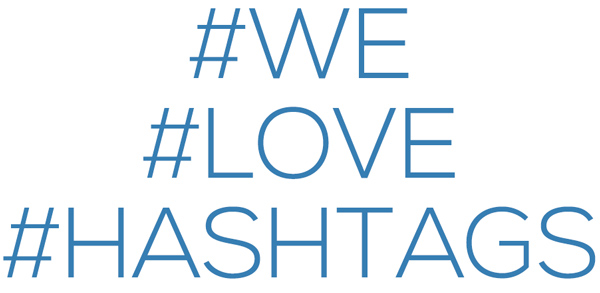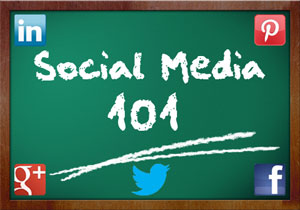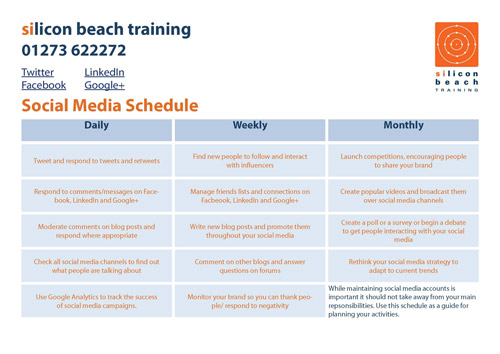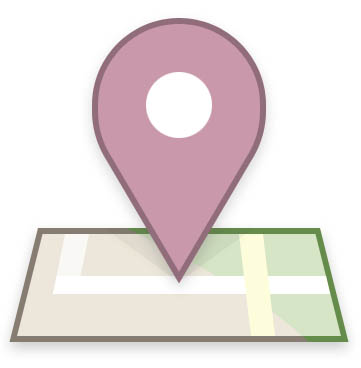Just over a week ago I had a rant about why social media isn't ruining the world, focussing on the reasons social media is said to be spoiling everything from our relationships to our memories and dispelling the myths that have been built up in the last few years.
My heckles had been raised by certain articles on well-regarded sites like the Huffington Post and well... also the Daily Mail. I was wound up I admit. Like this guy:

Maybe I hadn't had my morning coffee (milk, two sugars, if you're wondering) but I responded with a bit of a diatribe.
This week I'm going to take a more positive approach. I've just had a green tea and I got my full 8 hours sleep last night, so I'm going to calmly explain why I think social media is actually making everything a whole lot better.
On our Social Media Course, we explain why social media is so useful and important for business; something I'll expand on later, but there are plenty of other reasons social media really is a force for good. Like how it:
Aaron Charlie
29 Jul 2013
It seems like social media is accused of ruining the world on an almost daily basis in news and blogs across the web, for a multiplicity of reasons: it's causing the breakdown of relationships, breeding a culture of narcissistic and parasitic youths and shrinking our attention spans to the point that we can barely even finish a senten...
Awful joke aside, this is a serious barrage of allegations to be levelled against what is arguably one of the biggest communication technology developments there has ever been.
And it's just plain wrong. Social media is not ruining your life, my life or the world.

In a lot of ways, it's doing the exact opposite - it's making everything a whole lot better.
Although our Social Media Training focusses on the potential business and marketing uses of social media, it can be used for a whole lot more.
So let's take a look at some of the most often quoted reasons that social media is Satan in technological form and try to debunk these myths.
Aaron Charlie
17 Jul 2013
Updated 13/06: Facebook has confirmed it will be rolling out hashtags for users, starting from today.
The latest news out of Facebook HQ (it seems like there's something new every week at the moment!) is that the social giant is considering trialling the use of hashtags, the now ubiquitous topic grouping symbol popularised by rival Twitter.
If Facebook does go ahead with the idea, rumoured to be intended to work alongside the new graph search feature to make topics and conversations easier to find, it will join Twitter, Pinterest, Google+ and its own sepia-soaked photosharer Instagram as a user of the device.
Bearing all that in mind, we thought it would be worth having a refresher in how best to use hashtags for marketing on all the major platforms. Of course to really get to grips with marketing on Twitter, Facebook and the like, our Social Media Workshop is ideal.

If you want to see hashtags in action, follow us on Twitter, Facebook, and Pinterest.
So how do we go about using hashtags for marketing? Well firstly we need to distinguish between two different ways they are used by businesses across social media:
1/ Using Existing Hashtags
One very simple and popular way to use hashtags for marketing businesses is to find trending hashtags related to your specific niche and use them in your posts.
If for example, you write about Project Management, you could use the hashtags #pm #pmot to open up your posts to a wider audience who may be searching for content placed under that grouping.
Going down this route is generally seen to be the 'safest' option when using hashtags but you still need to be careful.
Aaron Charlie
13 Jun 2013
Last night Facebook announced Facebook Graph Search, putting to rest the many rumours surrounding the cryptic launch event in Los Angeles.
These rumours included Facebook Mobile & an external search engine, but the most popular rumour turned out to be spot on - Facebook has radically overhauled their internal search function in a move that should frighten other social networks, traditional search engines and privacy advocates alike.

There are already tons of posts about the new search function and very few people have access yet (you can sign up for beta here), so instead we are going to focus on how brands (and individuals) can optimise to appear higher and more frequently in search results. One of those lucky few to get early access was Danny Sullivan at Search Engine Land, so head over there for a full run down of how Facebook Graph Search works.
It's very interesting that Facebook is the first social network to bring out a search engine like this. On our SEO courses and social media workshops we emphasise how you can use social media to help rank better in search engines, maybe now we'll have to include a section on using SEO to rank better in social networks!
How Does Visibility Work with Facebook Graph Search?
| Mark Zuckerberg may claim that Graph Search isn't a direct competitor to Google, but it's still a search engine and so there will always be ways to rank higher. Facebook have managed to produce something that Google have been working on for a while - an Internet of Things. Instead of a database of web pages, they have a database of information on things - likes, photos, businesses, people, jobs, locations and many more - and can distinguish between these items. |  |
Your visibility rests on how your business is connected to searchers - the more of their friends have connected with you, the more visible you are in their search results. But this can be just one of many factors affecting your visibility, including:
- Total number of likes
- Total number of check-ins
- The level of engagement on your page
- How often people talk about your business
- The frequency that people check in/ engage
- The recency of check-ins/ engagement
- Your location
- Your potential reach (are your likes/check-ins just local or are people coming from further afield?)
There are likely to be many more I haven't thought of, and the impact of each is determined by the type of search performed.
If a searcher is looking for businesses their friends like, then that will be the major factor. If they're looking for businesses in their area then total likes and of course location will have more of an impact.
But it's not just friends! You can search using an overwhelming number of factors. My favourite example of this is again from Danny Sullivan - "Search for Restaurants run by employees of a particular cooking school". So it's not just about number of connections, but about the type and value of those connections.
Craig Charley
16 Jan 2013
Social Media Marketing is now essential for brand reputation and for SEO. But, more than that, it’s an effective way of connecting with existing and prospective customers, and providing customer service.
It’s not enough to set up a Twitter account and post daily about your products or services – you need to maintain an online presence and engage with your followers – just one example of how businesses aren’t using social media to its full potential.
We offer a 2-day Social Media course which is jam packed with advice, guidance, strategic tips, what-to-dos and what-not-to-dos. The course is continually updated with the latest developments in the industry, and you leave ready to begin (or revamp) your business’s social media campaign.
For those who are thinking of coming on the course, or those who can’t make it to Brighton (although we’re happy to train you on site!), here’s our Ultimate Guide to Social Media Marketing. We hope it helps!
Our #1 Ultimate Most Important Top Tip
The number one thing to be aware of is that social media marketing is not about you - it's about them ('them' being your followers, those who like your pages, your connections and your circles). Never forget to ask yourself what you want to see on social media from a business – and that constant self-promotion is the quickest way to put people off. I see examples of this happening every day.
With that in mind, I’ll take you through how to apply this principle to the various social networks.

Aaron Charlie
13 Jul 2012
|
Timeline was originally for developers only, then became public but only through opt in. Now, they're forcing it on everyone. As of this week you don't have a choice - make the change or get off Facebook (find out how to do that at the end of the post!) Now that Facebook are thrusting their new Timeline profile structure on to all who haven’t already upgraded to it we thought it would be a good time to give a full rundown of what you can do with it, so you can have full control over your virtual story of your life. |

We have covered how to customise your profile, how to manage your privacy settings, any new features that have been rolled out since our last post and how to delete your account. Because there's so much info we've provided a helpful contents list to help you navigate to the right section!
If you're looking to use Facebook as a marketing tool then you should come on our Social Media course. This 2-day workshop is perfect for learning how to use social media for marketing and can be booked as a package with SEO Training and Content Marketing Training. Call us on 01273 622272 to hear more about the course or to discuss your training requirements.
Update: This post has been updated to include some even newer updates recently made by Facebook.
Aaron Charlie
3 Feb 2012
|
when it comes to social media there is an ever-increasing number of online channels which can be used to quickly spread the word about your projects, products and services. But the wide range of choices available and the software available to manage social media can be daunting. When it comes to managing your social media, consider what your business priorities are and what areas you need to focus on daily, weekly or monthly. Planning your social media activity is crucial! |
 |
We've made life a little easier with our updated downloadable free Social Media Schedule .PDF!

Daily
Daily social media tasks are crucial for maintaining your image and conversing with others. While it is not time effectively to always be on Twitter and Facebook you want to make sure you respond to any communication quickly.
- Twitter - Tweet and respond to tweets and retweets - Tools such as TweetDeck and HootSuite are great ways to manage Twitter and if there's a topic you want to keep an eye on you can create a search column using the related hashtag.
- Google+ - respond to mentions and comments on your posts, scan the feed for interesting content to +1.
- Facebook - check your profile, pages and groups and respond as appropriate.
- LinkedIn - respond to private messages and posts/comments in your groups if you have any.
- Blogs - Respond to comments on your own blog posts - this opens up a dialogue between you and your users/followers, maximising opportunities for business relationships and reciprical marketing.
- Bookmarking - Scan what's popular on bookmarking and recommendation sites such as Delicious, Stumbleupon and Digg and then add your own bookmarks accordingly.
- Analytics - Google Analytics is the main choice for clear and concise information and it now features real time reporting. This is great as you can monitor your traffic from social media channels during campaigns to find our what elements of your social media strategy are the most successful.
Weekly
Heather Buckley
21 Oct 2011
| If you haven't already heard - Facebook Places went live in the UK today. Facebook's new rival to Foursquare will allow anyone using Facebook on a mobile device with geo-location to "check in" wherever they are and have it display on their status. This will provide businesses with new opportunities to promote their services, and offer discounts for customers who regulartly check in. |  |
To learn more about other ways to promote your business using Facebook, we run a 2-day Social Media Training. You can also combine this with our Email Marketing Training and other Internet Marketing courses with our Pick'n'Mix deals also offering Search Engine Optimisation Training and PRINCE2 training.
If you want to promote your business using Facebook Places, the first thing you're going to have to do is to claim your business.
This step-by-step guide explains each part of the process...
Aaron Charlie
17 Sep 2010